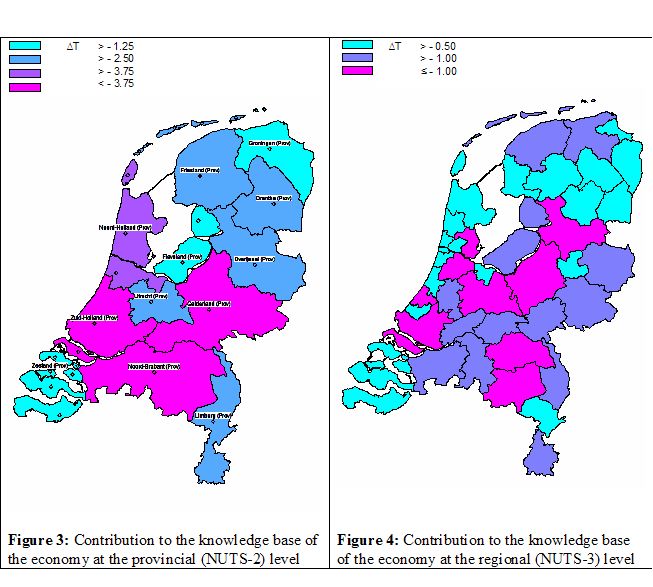Date: Tue 11 May 2004 - 09:49:43 CEST
Measuring the Knowledge Base of an Economy
in terms of Triple Helix Relations among 'Technology, Organization, and
Territory'
* apologies for cross-postings
The interrelationships among technology, organization, and territory in
an economic system have been considered as a 'holy trinity' from the
perspective of regional development studies. The mutual information in
three dimensions was proposed as an indicator of the surplus value
(entropy) in triple-helix configurations. When this probabilistic
entropy is negative, the configuration reduces the uncertainty that
prevails at the systems level. Data about more than a million Dutch
companies were used for testing this indicator. This data contains
postal codes (geography), sector codes (proxy of technology), and firm
sizes in terms of number of employees (proxy of organization). The
knowledge base is mapped at three levels: national (NUTS-1), provincial
(NUTS-2), and regional (NUTS-3). The levels can be cross-tabled with the
knowledge-intensive sectors and services. The results suggest that
medium-tech sectors contribute to the knowledge base of an economy more
than high-tech ones. Knowledge-intensive services have an uncoupling
effect, but less so at the high-tech end of these services.
Loet Leydesdorff, Wilfred Dolfsma, & Gerben van der Panne, "Measuring
the 'Knowledge Base' of an Economy in terms of Triple-Helix Relations
among 'Technology, Organization, and Territory'," Paper to be presented
at the 10th Annual Conference of the Intern. Joseph A. Schumpeter
Society, Milan, 10-12 June 2004.
A preprint version is available at
http://www.leydesdorff.net/iss04/index.htm and
http://www.leydesdorff.net/iss04/iss04.pdf
